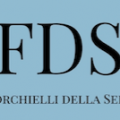“Mexicanization” is a term coined by the entrepreneur and economist from Bologna, Alberto Forchielli, who, with this neologism, refers to the fact that Italy is trending toward a Mexican model represented by three economic aspects. The first is excellent Italian industries that would become sealed in compounds protected by armored guards and sophisticated alarms. The second is formed by a substratum of undocumented work that will involve the abuse of underpaid foreign workers. The third, on the other hand, is the most unsettling and dangerous: organized crime.
We interviewed the eclectic entrepreneur yesterday. He boasts an extraordinary CV: MBA with honors from Harvard Business School and an economics degree con lode from the University of Bologna. He is a founding partner at Mandarin Capital Partners, he has worked at the World Bank, and was the head of Finmeccanica S.p.A in the Asia Pacific region. In addition, he was the secretary general for the privatization of IRI, and currently serves on the corporate advisory board of the China Europe International Business School, which is one of the top 30 business schools in the world.
Forchielli is known among the general public for his “explosive” TV appearances in which he says what other won’t. Patently frustrated by political rhetoric, Forchielli encourages young Italians to emigrate, cites the great Italian businesses of the past that have been forgotten by the collective imagination of our time, and dispels stereotypes propagated daily by the media.
However, listening to him I thought that the real risk is not the Mexicanization of Italy, but rather the Mexicanization of our brains. To explain myself better, here are three things that worried me while reading Il Potere è Noioso:
1. We are very poorly informed about what happens around the world every day;
2. We are surrounded by hungrier, more competent people who are more willing to make sacrifices;
3. We don’t know our own history, and therefore are like blind people walking towards a cliff while commenting on the pleasant breeze.
The negative aspect of our predicament is that we’re really in the shitter. The positive aspect is that the points enumerated above are connected by a thin red line represented by a few simple considerations: we can become better informed thanks to the availability of information; propensity to sacrifice depends only on ourselves, therefore we can (and need to) practice it; anyone can learn about our history, so maybe we should turn off the TV and dedicate a few hours a day to studying our past.
Forchielli warns “not to barter four years of fun for a lifetime of misery,” and how can we argue? Turns out the only effective medicine is studying and working much harder than we have been, and “finding ideal historical figures to anchor us” and imagine ourselves as deserving protagonists to model the future rather than endure it.
We live in an exciting world, and we can see the birth of extraordinary technological innovations that will inevitably modify the reality that we’ve known until now. At this point, we need to choose which road to pursue, and it certainly won’t be our demands—however just—that create the future, but rather the actions we undertake every day.
In conclusion, if there is something stimulating in Il Potere è Noioso, it’s that at its core, among the author’s many criticisms, it celebrates the men that in many ways and in many epochs, “despite having every reason to say no, said yes.” They said yes with their sacrifices, their cohesion, by following their passions, and by performing their duties deep down.
Young Italians today might not live to see the Italy we dream of, but we can do our part to be, in turn, the anchors that will one day give hope and strength to those that come after us.
Now is the time to say yes, and prevent the Mexicanization of our brains!
Written By Nicola Pozzati, 1/10/17 and published on 5.9 Web Radio Blog

BLOG
Listening to Forchielli is a good way to avoid Mexicanization
Alberto Forchielli30 Gennaio 20170
Share



















Lascia un commento